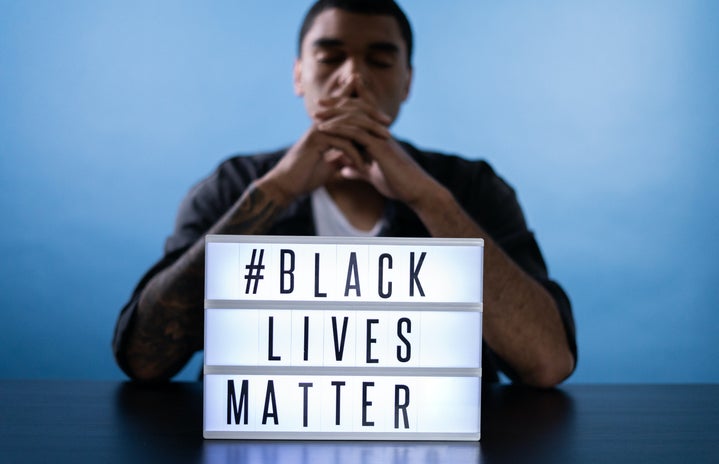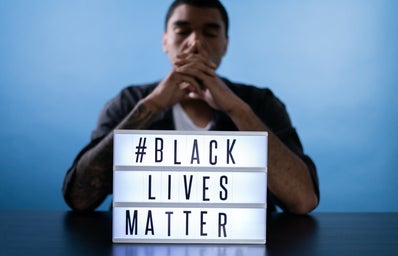It’s Black History Month, and it’s the first one after a surge of BLM protests over the summer in 2020 that resulted from the murders of black American’s due to police brutality. This is sadly not something new, as black Americans have been victim to institutionalized racism since before our country began. African Americans are significantly more at risk of being killed by the police with black men being the most at risk. This information probably doesn’t surprise too many people as the pandemic focused much of the media’s attention on well the pandemic, and the BLM movement.
Media has helped in some regards in spreading the movements cause and shining light on the ongoing police brutality and systemic racism in the country but, it has also done what it does best: exploit. BLM received much attention because people were expanding the movement and mainstream media saw that this was becoming a popular topic and has turned the movement into a for profit phenomenon.
Mainstream media has had a reputation of taking things and exploiting them to create revenue, like fast fashion. This is sadly pretty much destined to happen as that is what allows for a capitalistic society like ours to thrive. But, what is sickening is the performative activism taking place as a result of the media’s attempt to monetize the movement.
As a result of the surging protests, the demands for racial equality and representation have also heightened. Large companies and corporations were scrambling to change their profile pictures or release a statement to ensure they looked good in the public’s eyes. Some did it in a way that showed true solidarity, but others were an obvious display of performative activism. There isn’t much of an issue with a company issuing a statement or changing their profile picture to show support, it’s just that we’re just asking for companies to support their BIPOC employees.

Take for example how Netflix has now added their “BLM collection” in which they have just put together all the movies with BIPOC in one place. What exactly is that supposed to do? They’re really just advertising movies they’ve already made money off of. All people are asking for is for Netflix to cast more BIPOC, especially in lead roles. We’re asking Netflix to include BIPOC and their stories. The work they went into putting together that little category, they could’ve spent on looking to hire more BIPOC actors.
Target is also on the list of companies that are making lame attempts to appear as though they are allies. They recently released a black history month collection of clothing and accessories that are supposed to celebrate black history. These accessories have sayings like “you good?”, “yasss hype me up sis” and “racism tried to steal my joy ha! tried.” How exactly is this celebrating black history or black culture? I mean, they did state that their collection was designed by black artists and they did use black models, but I mean that’s just the bare minimum honestly. The thing is, these shirts don’t do much. It’s a sad attempt of representation as they are just using stereotypical language. Not to mention that if they really cared about celebrating black history, they would release a collection that is more based on black culture.
While media can be helpful for social justice movements as they bring awareness to the cause, they can also be harmful. As we move through Black History Month, let’s be aware of the marketing strategies that companies use. Hold companies accountable for their lame attempts of showing solidarity towards BIPOC communities. Don’t accept performative activism from companies and praise their half-hearted statements. Educate yourself and continue to listen to those who are not heard.


